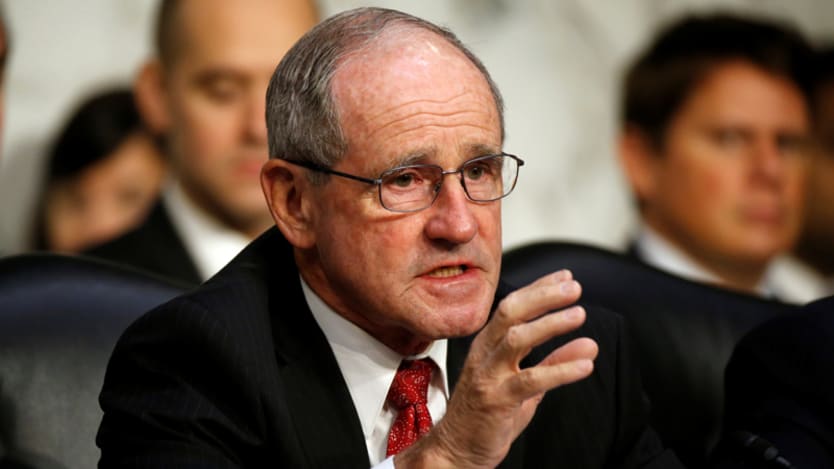
WASHINGTON — In his first U.S. Agency for International Development budget hearing as chairman of the Senate Foreign Relations Committee, Senator James Risch said Wednesday that U.S. foreign assistance spending must be strategic, aligned with U.S. national interests, and must eliminate duplication and waste.
"[Global] challenges are daunting and the means to address them are limited, so it is incumbent upon this committee to carefully scrutinize the president’s foreign aid budget.”
— Republican Sen. James Risch, chairman, Senate Foreign Relations CommitteeUSAID Administrator Mark Green was before the committee to testify about the Trump administration’s fiscal year 2020 budget request, which for the third year in a row proposed a drastic funding cut for foreign assistance programs. Many bipartisan members of Congress have come out strongly against the request — Republican Sen. Lindsey Graham of South Carolina last week called it “insane” — but Risch, an Idaho Republican, was more measured in his comments.
"In any budget, difficult choices must be made. Investing in U.S. military readiness is a good choice,” Risch said. “But undercutting effective diplomacy and development — which can help stabilize situations before they spin out of control, disrupt pandemic health threats before they cross our borders, and support the growth of healthier, more stable societies with whom we can trade rather than aid — is not.”
Risch took chairmanship of the committee in January after the retirement of Sen. Robert Corker, a Republican from Tennessee, who was known to have a deep understanding of the importance of U.S. development assistance and championed a robust budget despite the Trump administration’s requested cuts. Risch’s views on development issues were largely unknown as he took the gavel.
In his opening statement, Risch acknowledged the host of challenges facing the world, among them forcible displacement, hunger, famine, Ebola, and restricted access to polio vaccines.
"And corrupt governments, weak institutions, food and water scarcity, climate shocks, pandemic health threats, and economic exclusion are fueling broader insecurity and creating opportunities for extremist groups to exploit vulnerable populations and threaten our interests,” Risch said.
"The challenges are daunting and the means to address them are limited, so it is incumbent upon this committee to carefully scrutinize the president’s foreign aid budget.”
Risch said the budget must “focus on breaking the chain of dependency by helping communities help themselves,” a concept Green has championed through his “journey to self-reliance” agenda at USAID, which focuses on helping countries solve their own development challenges.
During the proceedings, which Risch called “one of our more enlightening hearings,” the chairman asked just one question of Green, about the Ebola outbreak in the Democratic Republic of the Congo. He called the inability to stop the disease's spread “alarming” and asked Green to explain why the outbreak hasn’t been contained.
“I think the important way of thinking of this Ebola challenge in DRC is that it’s not simply a medical challenge,” Green said. “We’ve had great success in fighting off pandemics before, but this is much more than that. This is a convergence of failures and dysfunctions, quite frankly. It’s a failure of institutions. It’s a failure of, in many ways, democracy.”
Other senators questioned the administrator about the Trump administration’s cut off of aid to the “Northern Triangle” in Central America, the response to the Venezuela crisis, Afghanistan, Russian disinformation, and Yemen.
“Even though the foreign assistance budget is one of the smallest slivers of the United States’ entire budget, the federal budget, it really can’t be measured in dollars. Its impact is critical for American interests around the world,” Risch told Green. “We need your agency to be a strategic, efficient, effective, and accountable. And we’re glad to have you there because we know you pursue those goals just as we do.”








